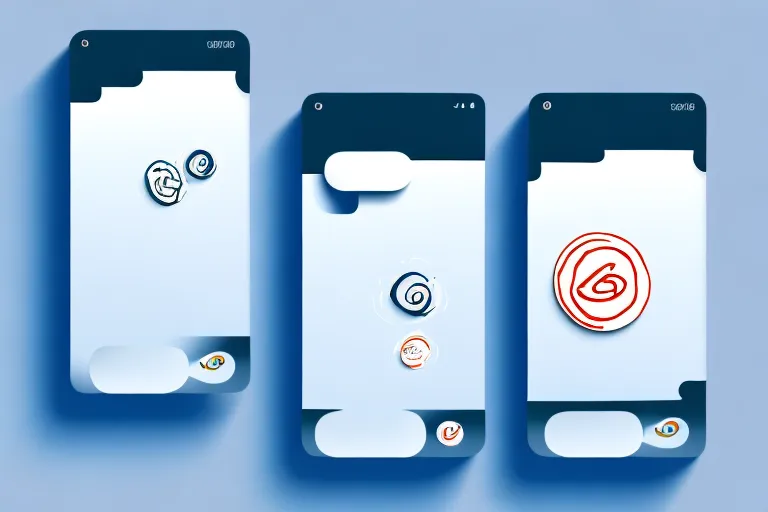When it comes to messaging services, there are two options available to users: SMS and RCS. But with the emergence of RCS, many have speculated whether it is more reliable than SMS. In this article, we will take a closer look at both messaging services to determine which one is more dependable and why.
Understanding RCS and SMS
What is RCS?
RCS, or Rich Communication Services, is the next level of messaging beyond SMS. It is a protocol that provides users with enhanced messaging capabilities, such as high-quality multimedia sharing, group messaging, read receipts, and more. RCS also supports end-to-end encryption, allowing users to send and receive messages with enhanced security and privacy protection.
With RCS, users can send and receive messages with higher quality images, videos, and audio files. This means that you can share your favorite songs, videos, and photos with your friends and family without having to worry about quality loss. Additionally, RCS allows users to create group chats with up to 100 participants, making it easier to stay connected with your friends and family.
Another great feature of RCS is read receipts. With read receipts, you can see when your message has been delivered and read by the recipient. This is a great way to know if your message has been received and read, or if you need to follow up with the recipient.
RCS also supports end-to-end encryption, which means that your messages are secure and private. This is especially important for sensitive conversations, such as those related to finances or personal information.
What is SMS?
SMS, or Short Message Service, is a simple text-based communication protocol that allows users to send and receive messages of up to 160 characters. While SMS has been the standard messaging service for the past few decades, it lacks many of the advanced features of RCS, making it less versatile than its successor.
Despite its limitations, SMS is still a widely used messaging service. It is supported by virtually all mobile phones and is a reliable way to send and receive short messages. SMS is also a great option for those who have limited data plans or slow internet connections, as it uses very little data and can be sent and received quickly.
However, SMS does have some drawbacks. It does not support multimedia messaging, which means that you cannot send or receive images, videos, or audio files. Additionally, SMS does not support read receipts, which means that you cannot tell if your message has been delivered or read.
In conclusion, while SMS is still a widely used messaging service, RCS is the future of messaging. With its advanced features and enhanced capabilities, RCS provides users with a more versatile and secure messaging experience. As more and more mobile carriers adopt RCS, it is likely that SMS will eventually become obsolete.
The Evolution of Messaging Services
The way we communicate with each other has come a long way since the days of sending letters through the mail. With the advent of mobile phones, messaging services have become an integral part of our daily lives. From SMS to RCS, let's take a closer look at how messaging services have evolved over time.
The History of SMS
SMS technology was first introduced in the 1990s and quickly became popular due to its ease of use and simplicity. SMS became the standard messaging service for mobile devices, used by billions of people worldwide. With SMS, users could send short, text-based messages to each other, making it a convenient way to communicate on the go. However, SMS has several limitations that made it difficult to use for more demanding communications. For example, SMS messages are limited to 160 characters, making it challenging to convey complex ideas or emotions.
Despite its limitations, SMS remained the dominant messaging service for many years. However, as smartphones became more prevalent, users began to demand more from their messaging services. They wanted the ability to send and receive multimedia-rich messages, as well as other features that SMS simply couldn't provide.
The Emergence of RCS
RCS (Rich Communication Services) emerged as a direct response to the limitations of SMS. With RCS, users can send and receive multimedia-rich messages, including images, videos, and audio files, among others. Furthermore, RCS supports group messaging, read receipts, and other features that make it a more robust messaging service than SMS.
One of the most significant advantages of RCS is its ability to provide a more seamless messaging experience. With RCS, users can send messages over Wi-Fi or mobile data, eliminating the need for traditional SMS messages. This means that users can send and receive messages even when they don't have a cellular connection, making it a more reliable messaging service overall.
Another advantage of RCS is its ability to support chatbots and other automated messaging services. This means that businesses can use RCS to provide customer service and support, allowing customers to interact with them in a more natural and intuitive way.
The Future of Messaging Services
The world of messaging services is constantly evolving, and it's difficult to predict what the future will hold. However, one thing is clear: messaging services will continue to play a significant role in how we communicate with each other. As technology continues to advance, we can expect messaging services to become even more sophisticated and intuitive, providing us with new and exciting ways to connect with each other.
Comparing RCS and SMS Features
When it comes to messaging, there are many options available to users. Two of the most popular messaging services are RCS and SMS. While both services allow users to send and receive messages, there are some significant differences between the two.
Message Delivery and Read Receipts
One of the most significant differences between RCS and SMS is the ability to track message delivery and read receipts. RCS supports read receipts, which enable senders to see when a recipient has read their message. This feature is not available on SMS.
For example, if you send a message to a friend using RCS, you will be able to see when they read your message. This feature can be especially helpful when you need to know if someone has received and read an important message.
Group Messaging Capabilities
RCS allows users to send messages to multiple recipients at once, making group messaging easier and more streamlined. While SMS also offers group messaging, it lacks the same level of versatility and ease of use compared to RCS.
With RCS, you can create groups and add or remove members as needed. You can also name your groups to help you keep track of who is in each group. This can be especially helpful when you need to send a message to a group of people, such as a team or a family.
Multimedia Support
One of the most significant benefits of RCS is the ability to send multimedia-rich messages. RCS supports images, audio files, video content, and other multimedia formats, making it an ideal choice for sending media-rich messages.
For example, if you want to send a picture of your new puppy to a friend, RCS allows you to do so easily. You can simply attach the picture to your message and send it. Your friend will be able to see the picture without having to click on a link or download an attachment.
End-to-End Encryption
RCS supports end-to-end encryption, making it a more secure messaging service than SMS. With end-to-end encryption, messages remain private and protected, making RCS a more suitable messaging service for confidential or sensitive communications.
For example, if you need to send sensitive information, such as a password or a credit card number, RCS can provide an extra layer of security. Your message will be encrypted and can only be read by the intended recipient.
Overall, both RCS and SMS have their own unique features and benefits. However, if you are looking for a messaging service that offers more versatility, security, and multimedia support, RCS may be the better choice for you.
Network and Device Compatibility
Carrier Support for RCS and SMS
While RCS is an advanced messaging service, not all carriers support it, making it less widely available than SMS. Furthermore, while SMS is universally supported by all carriers, its limitations make it less attractive to users who require more versatile messaging options.
Device Compatibility and Requirements
Both RCS and SMS work with most mobile devices, including smartphones and tablets. However, some older devices may not support RCS, making it less accessible to users of older technology.
Reliability Factors
Network Coverage and Signal Strength
Network coverage and signal strength are two important factors that affect the reliability of messaging services. While both RCS and SMS are reliant on mobile networks, RCS requires a more robust data connection than SMS to function correctly.
Message Latency and Delivery Rates
Message latency refers to the time between a message being sent and received. RCS typically has a lower message latency than SMS, resulting in faster message delivery. However, network congestion and other factors can also affect message delivery rates.
Service Interruptions and Outages
Service interruptions and outages are rare but can occur with both RCS and SMS. However, RCS has a more sophisticated network architecture than SMS, making it more resilient and less prone to service interruptions and outages.
Conclusion
In conclusion, while both RCS and SMS have their respective strengths and weaknesses, RCS is the more reliable messaging service. RCS supports advanced messaging features such as multimedia messaging, group messaging, and end-to-end encryption. Furthermore, RCS has a more sophisticated network architecture than SMS, making it less prone to service interruptions and outages.

